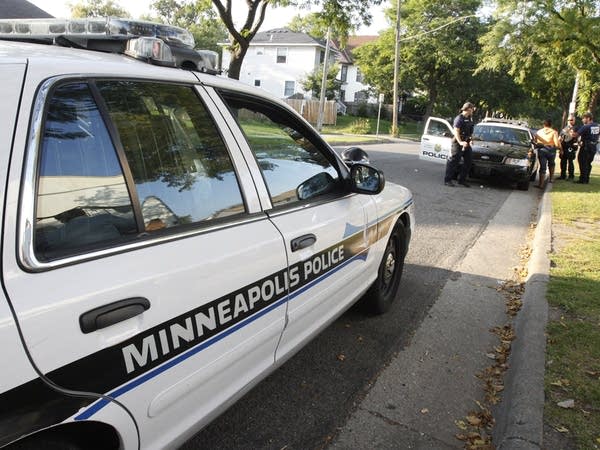Council committee considers proposal revamping Civilian Review Authority
Go Deeper.
Create an account or log in to save stories.
Like this?
Thanks for liking this story! We have added it to a list of your favorite stories.

A proposal that promises to make the process of investigating police complaints more efficient is under consideration by the Minneapolis City Council's public safety committee.
The proposal would make some significant changes to the city's civilian oversight of the police department.
City officials say the reason for the proposed changes is mainly because the current Civilian Review Authority does not work fast enough. Minneapolis Civil Rights Department director Velma Korbel said shrinking resources makes it difficult for staff to keep up with the caseload of complaints.
The proposal would create an Office of Police Conduct Review which would have eight or nine investigators, instead of the current two.
Turn Up Your Support
MPR News helps you turn down the noise and build shared understanding. Turn up your support for this public resource and keep trusted journalism accessible to all.
However, that part of the proposal generates some controversy. That's because the additional investigators will be officers with the police internal affairs unit. Under the current CRA model, people can choose to bring their complaints to internal affairs or the civil rights department. But under the new model, regardless of which group a complainant files with, internal affairs officers will see the complaints, and they may even be assigned to handle the investigation. The complainant will not know who is handling the investigation.
A few council members, including Meg Tuthill, said some people may withhold their complaints out of fear that they will not be treated fairly. After all, she said, they are going to police officers to complain about the conduct of other police officers.
"If I have a complaint against you, it's awful hard for me to go to you to have you investigate you," said Tuthill. "That concerns me immensely."
The head of the internal affairs unit, Lt. Travis Glampe, told council members that if a person presented evidence that legitimized their fears — although he didn't have an example of what that might be — officers would consider assigning that investigation to a civilian investigator.
Given the small number of civilian investigators, Glampe said they risk overloading the system again if they allow everyone with concerns about trusting police officers to have their complaint assigned to a civilian investigator.
Korbel defended the new model, saying it will help the civil rights deptartment reach one of the goals it set out to accomplish through civilian oversight — change the culture of the police department.
"You can't change the culture, without the people responsible for the culture being involved in the investigative process," Korbel said.
Like the CRA, the proposed body would also include a panel of people who would conduct community outreach activities and make recommendations to the police department on how it trains officers and encourages cultural awareness. That is something that the current board hasn't had much time to do.
Under the current system, CRA board members also participate in hearings involving complaints and the officers. The new system will have a separate panel for that.
Under the proposal, a four-person panel will hear testimony from complainants and officers. The panel will be made up of two civilians and two sworn officers who've at least achieved the rank of lieutenant. However, the panel cannot make a finding of fact for a case they send forward to the chief of police for review. The Minnesota Legislature passed a law this session that prohibits any civilian review authority from doing that.
The city council committee did not vote on the proposal, but instead directed city staff to set up two community meetings for before Sept. 12, when the committee meets for a public hearing in council chambers.




